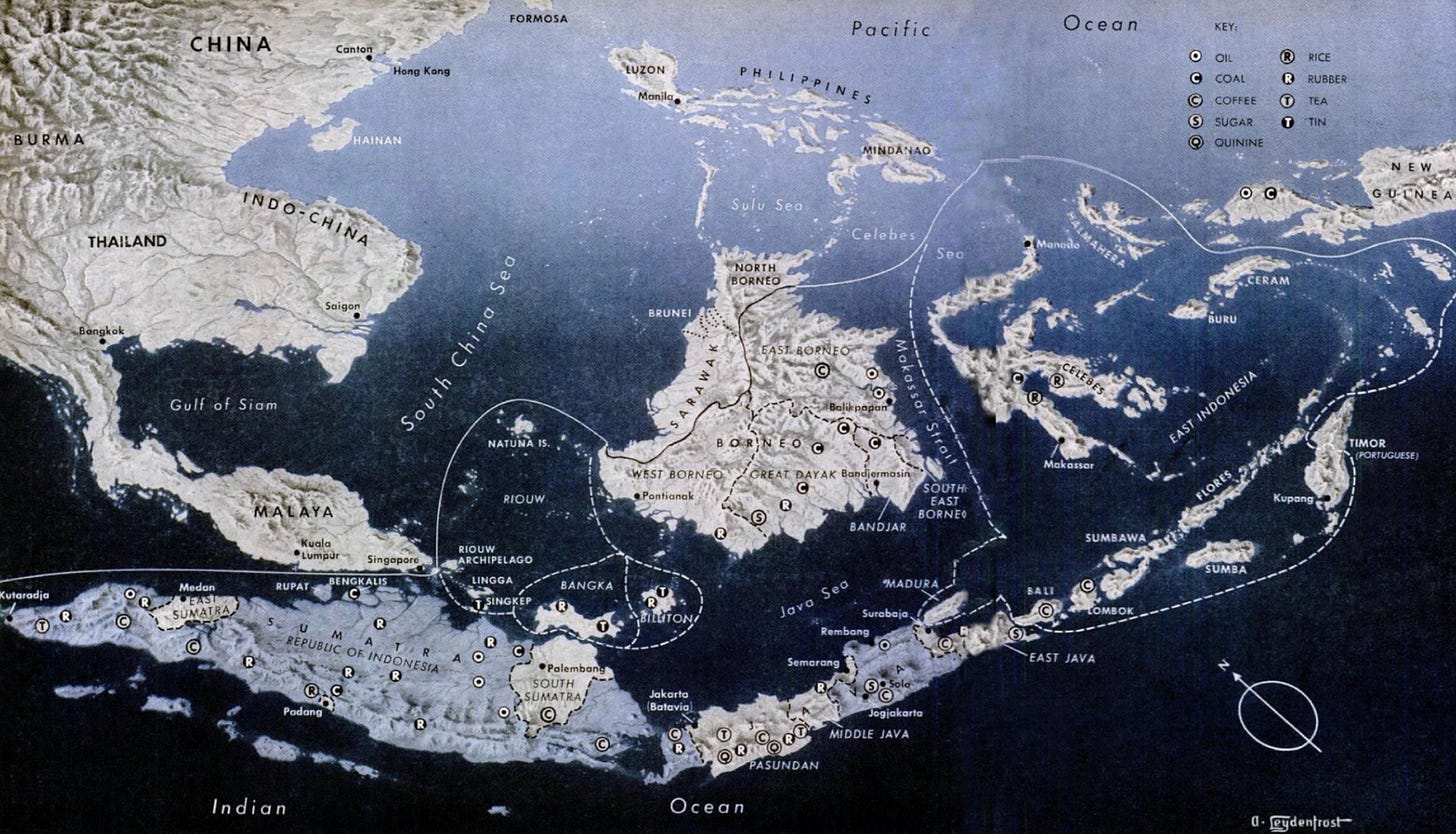Week signals: Djakarta is coming
Plus: watch points for the UK, the EU, the CP-TPP, Romania, Portugal, the US, and Russia.
This week:
IN REVIEW. The White House can remain irrational longer than you can remain solvent, an archipelagic analogy.
UP AHEAD. The EU and Britain, the EU and the Pacific, elections in Romania, Portugal and Poland, plus Caesar and the czar.
Week Signals is the Saturday note for clients of Geopolitical Strategy, also available to GD Professional subscribers on Geopolitical Dispatch. Click here to learn more.
The Week in Review: (Dutch) East Indies disease
The week began with talks that brought a truce between the US and China on trade. It ended with talks that failed to bring one between Russia and Ukraine (though it did lead to a 1,000-per-side prisoner swap). In between, the US withdrew sanctions on Syria and heralded a "sort of" deal to come with Iran. Big-ticket agreements were signed with Gulf states (though the details are less impressive); Europe hosted more conferences; Latin American dignitaries gathered in Beijing; and a ceasefire held between India and Pakistan.
A big week in global affairs, but also in markets. Equities were buoyed by the news of "only" 10% and 30% bilateral tariffs on US and Chinese goods, respectively. Oil fell on the prospect of Iran rejoining global energy markets (at least in less-sanctioned form). Recession forecasts were pulled, and rate predictions were recalibrated, settling yields.
But the week's other coda – a Moody's US sovereign credit downgrade from Aaa to Aa1 – reminds us the uncertainty isn't over. It's only begun. While perhaps late to the party considering the enormous risk the Trump administration has injected into US fiscal, monetary, trade and foreign policy, Moody's cut could nonetheless trigger further volatility in bonds. The White House reacted predictably, making ad hominem attacks on the analyst, Mark Zandi, but it's difficult to argue with the reasoning. And in some ways, a shot across the bows should help a rational executive to press Congress on hard choices regarding its "big, beautiful" spending bill, a draft of which has been just rejected by the House Budget Committee.
But we're not dealing with a rational executive, at least in the sense of what markets would normally consider rational. And while there may be some internal logic from the perspective of self-dealing and personal interests, the public interest 3D-chess justifications fail to stack up. Instead, we’re likely dealing with several executives: the Bessent White House (largely orthodox if slightly mercurial); the Vance White House (isolationist, paleoconservative); the Navarro-Lutnick White House (autarkic, precipitous); and so on. When the real president is out signing executive orders, or preparing for a tweet, any of these shadow administrations could be in charge.
A fortnight ago, I wrote about the restraining power of the markets on the White House(s) and what signal the markets were then sending on the president’s actions. Earlier this week, I spoke to the National Australia Bank’s podcast on some further intersections between Trump’s America and the financial markets. Today, I want to go a bit deeper on how markets may come to view the next three years of American court politics (i.e., as in the court of a king, not the judicial variety). And to me, living in the Asian time zone, one overlooked corollary is a place like Indonesia, a country with a similar population and geographic size (if you include its archipelagic waters), an enviable self-reliance in terms of natural resources, double ocean frontage, and, sadly, a rapacious economic and political elite. So, what can Jakarta teach Washington or Wall Street?



